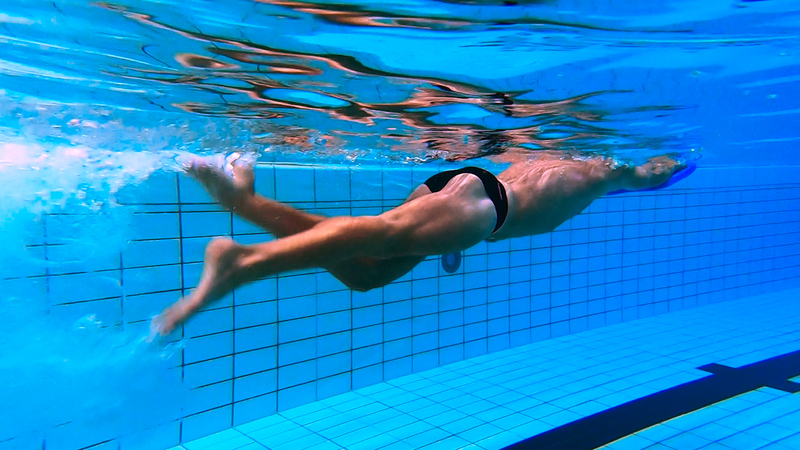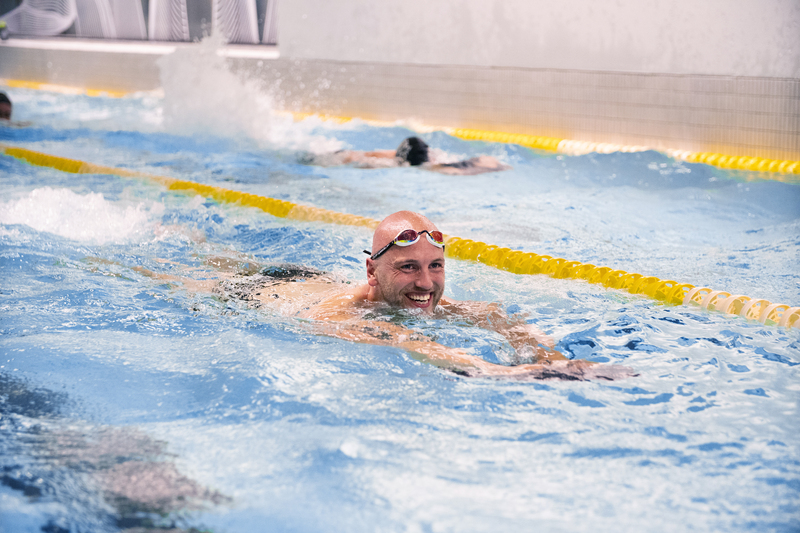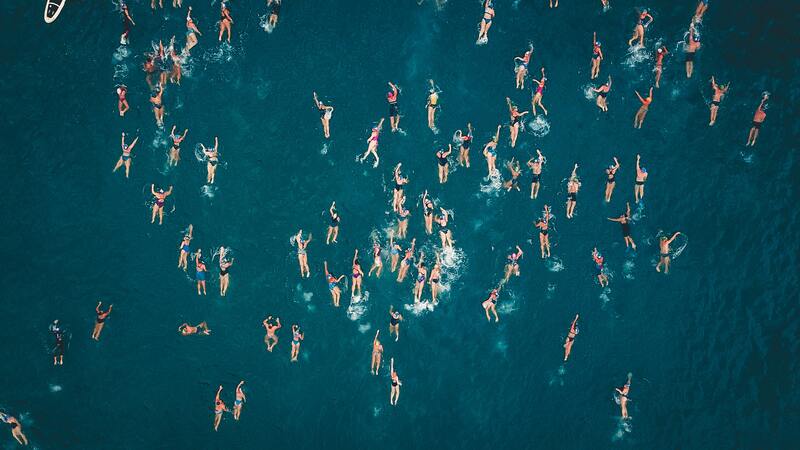Swimming blog - TRIATHLON and KICK WHY EVERY TRIATHLETE SHOULD TRAIN THEIR KICK
The importance and function of the kick is often misunderstood among triathletes. Many triathletes are told that they shouldn’t kick during races, to “save the legs” for the bike and run. Especially because the kick doesn’t create much propulsion and is seen as a waste of energy, but nothing could be further from the truth. Having an effective kick will reduce the effort required to swim, and is therefore energy saving. Here is why!
The primary function of the kick
The primary role of the kick is to maintain optimal body position. The kick creates lift of the legs, because the downward phase of the kick is more powerful than the upward phase. The legs are then positioned higher in the water, which results in less drag. Whenever you're wearing a wetsuit this lift might be created for you, however using your kick is still necessary.
The kick functions as a counter balance to the upper body pulling motion, which stabilizes the body position and prevents it from snaking through the water. Even the slightest kick will keep your core engaged and your body in a straight line. Therefore reducing drag while swimming. Next to creating counterbalance the kick will also drive hip rotation, which brings us to the second reason why kicking is so important.

Generating propulsion
Studies show that swimming with kicking is up to 15% faster compared to swimming without. This is regardless of the intensity of the swim. What's more interesting is that the energy used in both cases is precisely the same, clearly suggesting that, kicking at least a little is far more beneficial than not kicking whatsoever.
Swimming with kicking makes you faster due to the effect on hip rotation. An effective kick drives the hip rotation. Without the kick, the hip rotation will just be mediocre. This might not seem to be problematic, until you realise how important hip rotation actually is. In addition to increasing the propulsion with every pull-through it also has a drag reducing effect.

Maintaining speed
The kick is also important for maintaining speed during the velocity fluctuations within every stroke cycle. There is a moment in the stroke where no speed is generated by the pull, here the kick is necessary to ensure that the speed of the body is maintained. Therefore kicking leads to being more efficient with your energy, you’re not constantly wasting energy on re-accelerating the body through the water.
Of course you want your stroke timing to be as optimal as possible, to minimize the amount of kick needed to maintain speed. A 2 beat kick usually does the job. However in certain water conditions, such as current and choppy waters, a stronger, 4 to 6 beat, kick is necessary to maintain one's speed, so if you have developed your kick you can use it which gives you an advantage on swimmers who haven’t.
Advantage on others
Talking about advantage on others, if you have a well developed kick, it will give you an advantage on other triathletes who have neglected theirs. In moments where you need to speed up, to hook onto the breakaway group for example, you can increase your kick rhythm to get you there. Where other triathletes might only have the stroke rate to play around with, you also have the option to increase your kick rhythm in addition to stroke rate when that's necessary, making you an all round better triathlete in the water.

All in all, if you want to shave off some time in the water, mae swim portion of yoke thur triathlon more energy efficient and be a well rounded swimmer, you have to train your kick on a regular basis. We know it can be difficult and frustrating at first, however these 5 kicking tips will give you a great head start. Practice your kick during every session, a few laps during every warm up is a good start, and soon you’ll notice the great difference it makes.